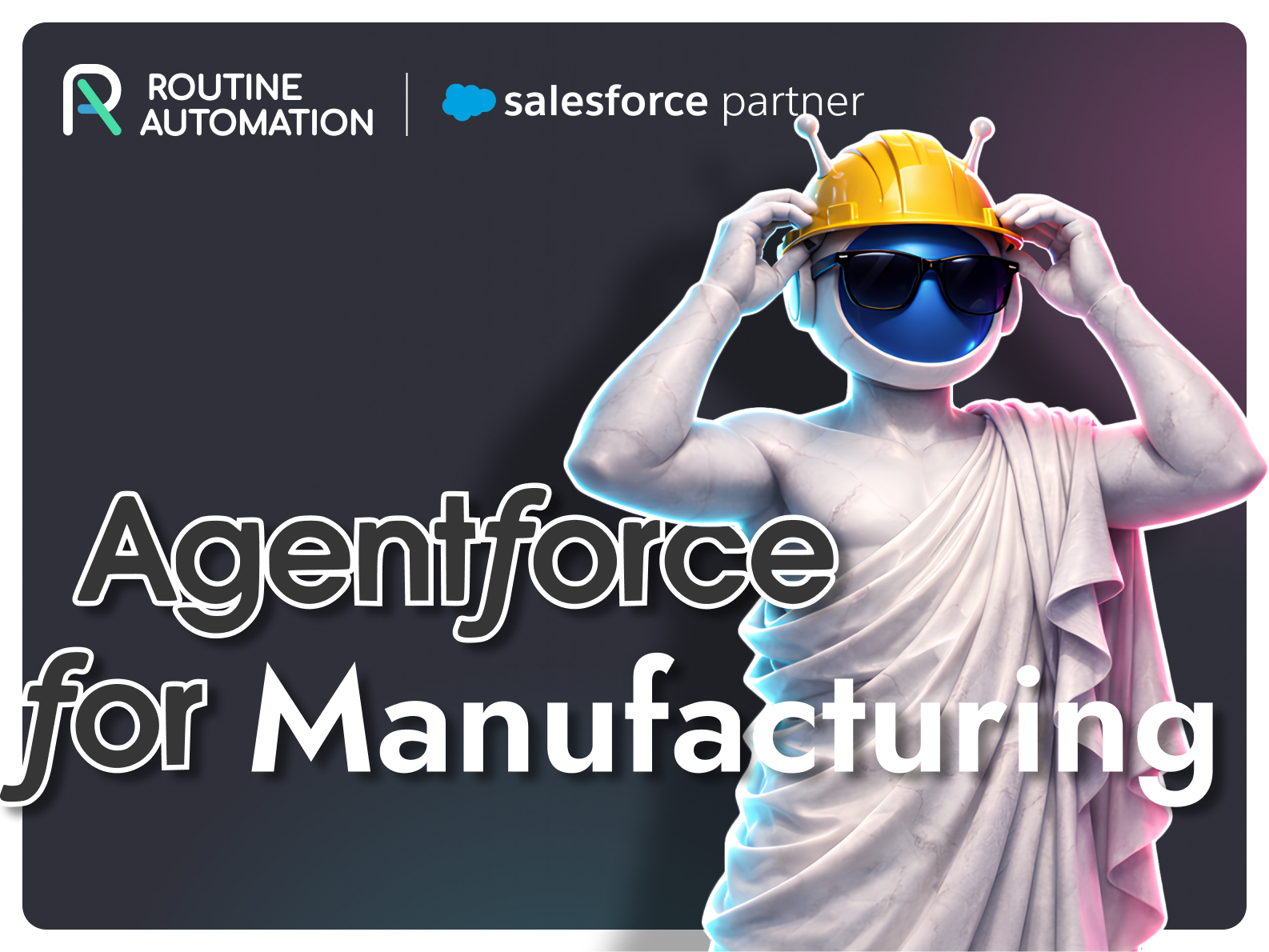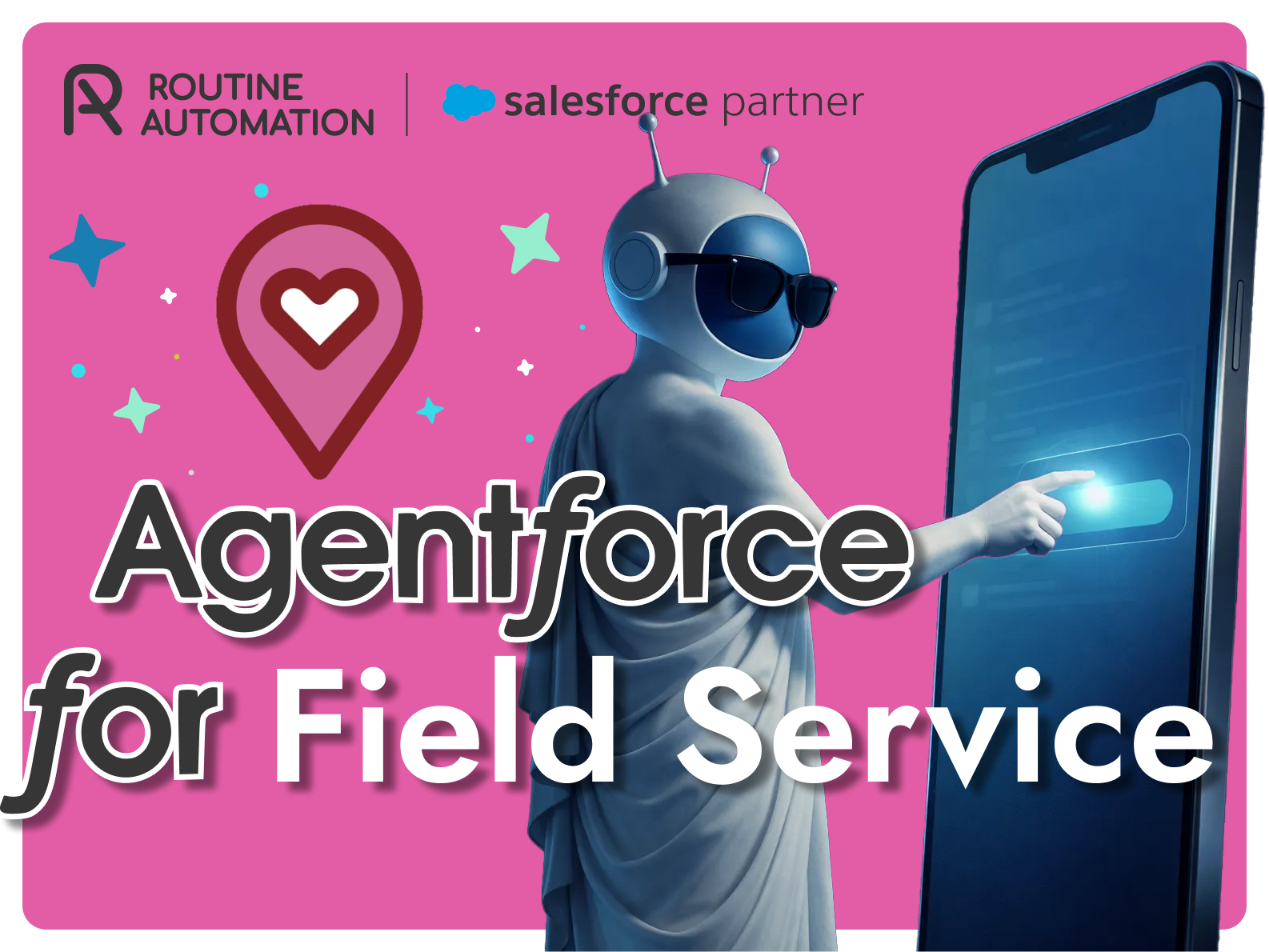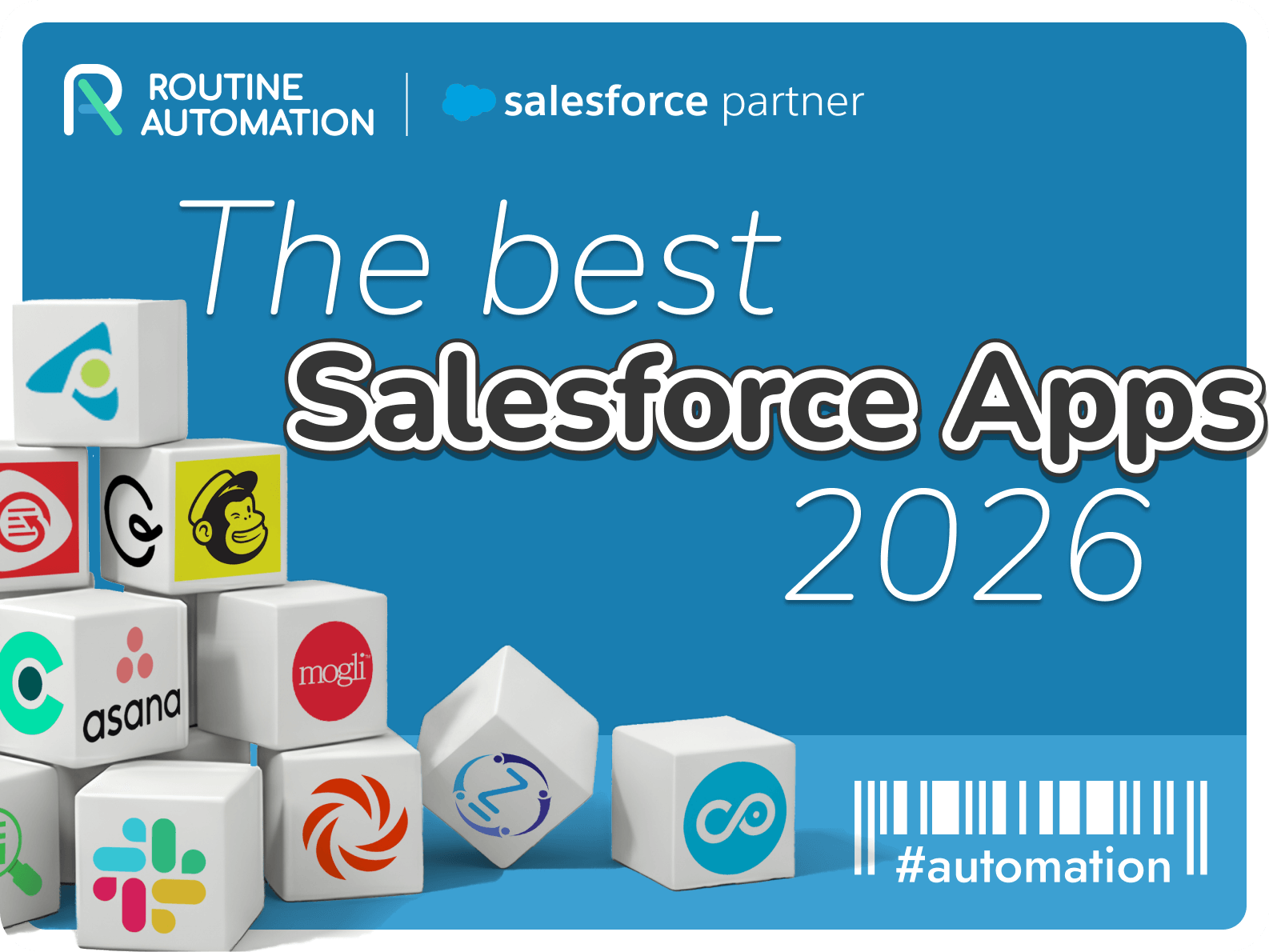HubSpot vs Salesforce: Which CRM is Right for Your Business?
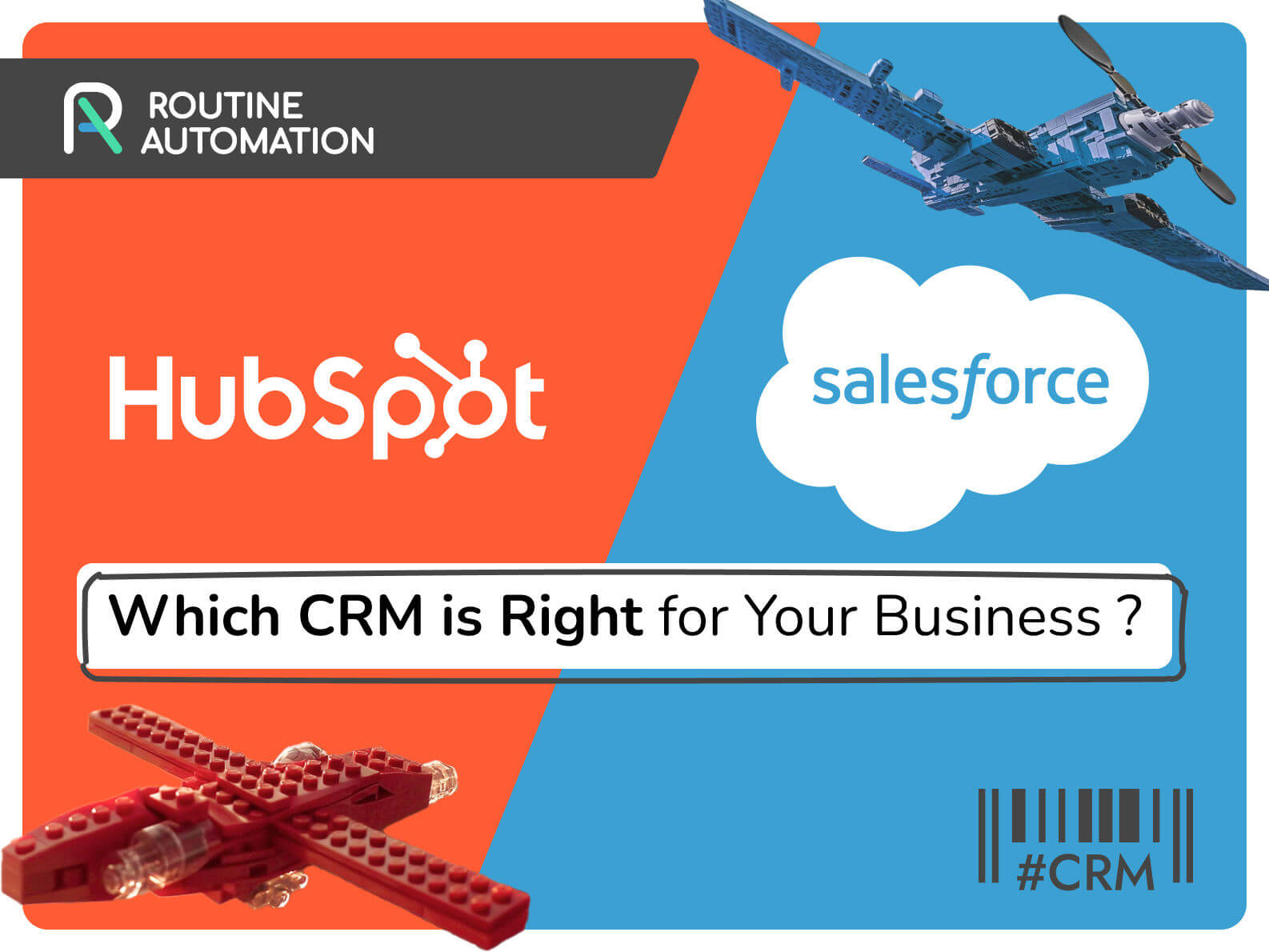
In 2025, choosing the best CRM is one of the most important decisions businesses can make. The right system enhances customer relationships, streamlines operations, and drives revenue growth.
HubSpot and Salesforce are two leading solutions, each catering to different business needs. But which one is best for you? As an official HubSpot Solutions Provider and a Salesforce Partner, Routine Automation can help you decide between the two options.
We are committed to enhancing understanding of:
- How will it make your day-to-day job easier?
- What results can you expect?
- Which CRM fits your company’s needs best?
This article compares both platforms to help businesses choose the right fit – without favoring one over the other. Dive in.
HubSpot vs Salesforce at a Glance
CRM stands for customer relationship management systems that help businesses track sales and automate marketing. 86% of companies that use a CRM exceed their sales goals. Most see a 21-30% increase in revenue with implementation. HubSpot CRM vs Salesforce CRM are top recommendations in this realm, but they are very different products, serving different needs.
HubSpot was initially a marketing tool that continues to be a full-fledged CRM with a focus on ease of use and inbound marketing. Meanwhile, Salesforce started as a CRM and expanded into a total sales and marketing package with deep customization and complex features.
Below is a table highlighting the main aspects to consider when choosing CRM for your business.
| Feature | HubSpot | Salesforce |
|---|---|---|
| Best for | Small to mid-sized businesses (SMBs), startups, companies looking for an all-in-one, easy-to-use CRM | For large businesses with complex processes, who want to invest and expand their CRM platform |
| Ease of use | Intuitive, user-friendly interface with drag-and-drop features | Steeper learning curve, requires training and customization |
| Pricing | Start at 15 for all hubs. Different pricing applies based on the license level. | $25 per user per month. Requires additional costs for add-ons and integrations |
| Customization | Limited compared to Salesforce but sufficient for most SMBs | Highly customizable with extensive third-party integrations |
| Automation | Good automation tools but less advanced than Salesforce | Powerful automation, ideal for complex workflows |
| Scalability | Best for growing businesses but may lack deep enterprise-level features | Highly scalable, suitable for large enterprises |
| Marketing features | Strong built-in marketing automation, landing pages, and email marketing | Requires additional Marketing Cloud integration for marketing automation |
| Sales features | Includes pipeline management, email tracking, and sales automation | Advanced sales forecasting, lead scoring, and AI-powered insights |
| Support | Email and community support; paid plans include live chat and phone support | 24/7 support available, but premium support is expensive |
| Integrations | Native integrations with many apps but fewer compared to Salesforce | Thousands of integrations through AppExchange |
| Reporting and analytics | Basic reporting and dashboards; advanced features in higher-tier plans | Advanced analytics, AI-powered insights, and customizable reports |
| AI capabilities | HubSpot AI features are growing but not as advanced as Salesforce | Einstein AI for predictive analytics, automation, and customer insights |
| Mobile app | Available but with fewer features than Salesforce | Feature-rich mobile app for sales and service teams |
What is HubSpot?

HubSpot is an easy-to-use, all-in-one CRM that combines marketing, sales, and customer service tools, ideal for small and growing businesses.
HubSpot is an easy-to-use, all-in-one CRM that combines marketing, sales, and customer service tools, ideal for small and growing businesses.
Main features:
Target audience:
What is Salesforce

Salesforce is a highly customizable, AI-powered CRM designed for large enterprises needing advanced automation, analytics, and scalability.
Main features:
Target audience:
Key Feature Comparison
While you already know the main distinctions between HubSpot CRM vs Salesforce CRM, let’s break down their core features.
Sales reporting & forecasting
HubSpot: Simplified Reporting for Small to Mid-Sized Businesses
Best for: Teams looking for a user-friendly CRM with robust, out-of-the-box reporting and forecasting, free from the complexities of enterprise-level tools.
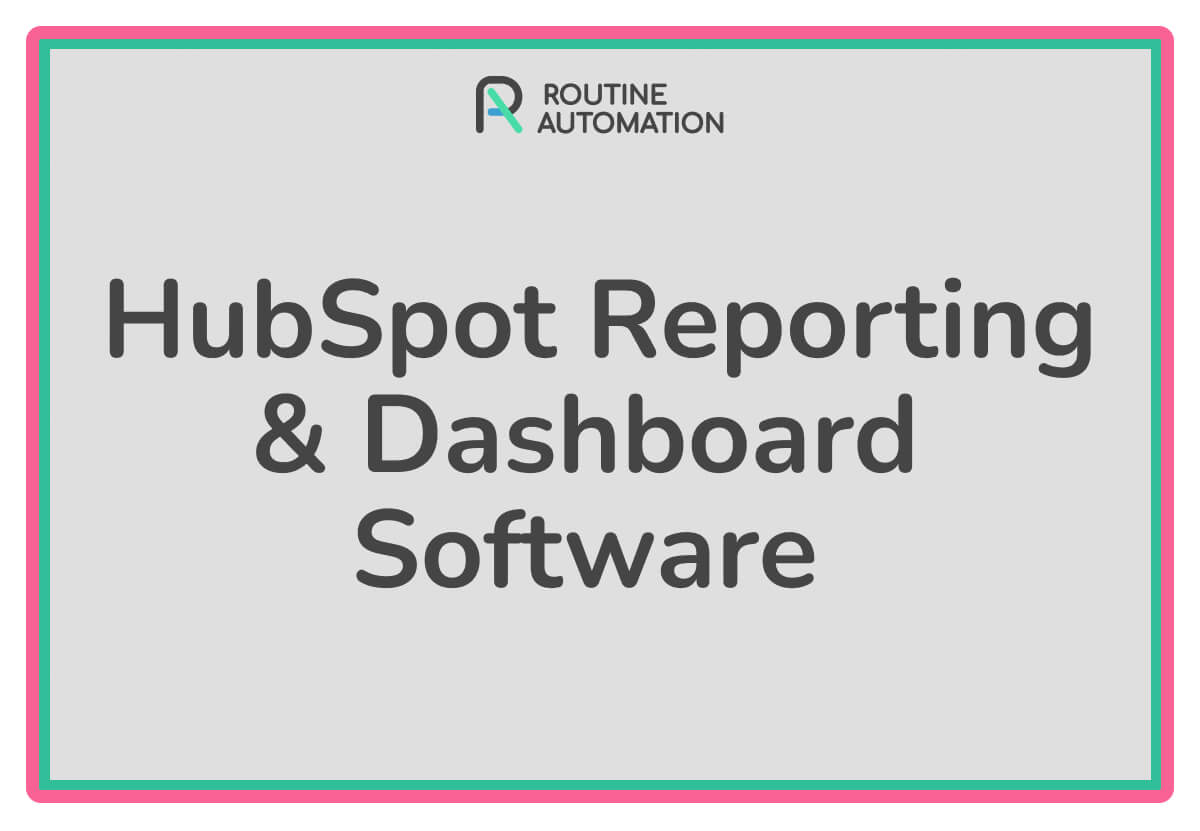
Get Clarity with HubSpot Reporting & Dashboards
Already leaning toward HubSpot? We’ll help you harness its reporting features to create custom dashboards, track what matters, and make smarter, faster decisions backed by real data.
Salesforce: AI-Driven Forecasting with Deep Analytics

Best for: Enterprises needing advanced, AI-powered analytics and customizable reporting to manage intricate sales operations.
AI & Automation
HubSpot: User-friendly AI features for lead scoring, chatbots, and workflow automation.
AI could also assist in email optimization, predictive sales forecasting, or content generation.
Salesforce AI, powered by Einstein for advanced predictive analytics, automation, and personalized customer insights.
With the help of these tools, you can get automated data entry, sentiment analysis, or intelligent case routing.
Customization & Scalability
HubSpot implementation: Ideal for growing businesses that need a fast, user-friendly CRM with Sales Hub, Marketing Hub, and Service Hub. It offers quick deployment and built-in automation, but customization is limited to preconfigured modules, which may become a constraint as operations become more complex.
Salesforce: A robust solution for enterprises needing deep customization and scalability. With Sales Cloud, Service Cloud, and Revenue Cloud (CPQ & Billing), companies can automate complex processes, scale without limitations, integrate with various systems, and tailor CRM functionalities to specific needs. This ensures efficient sales operations, improved customer service, and seamless revenue management.
Marketing Features
HubSpot: Known for its strength in inbound marketing, HubSpot excels with Marketing Hub, offering powerful tools for email campaigns, SEO optimization, and content management. It enables businesses to automate lead nurturing, track customer interactions, and increase brand visibility.

Perfect for teams looking for a user-friendly solution that accelerates marketing efforts.
Salesforce: Marketing Cloud brings AI-powered tools that help businesses run data-driven, multi-channel campaigns across email, social media, web, and more. Einstein Email Recommendations f.ex personalizes email content based on customer behavior and preferences. With predictive analytics, it optimizes ad spend, and boost campaign ROI.
Ideal for businesses seeking to leverage advanced analytics and automation to scale marketing efforts while delivering more relevant, personalized content to customers.
How to choose the best CRM?
To choose the best CRM, you need to consider several key factors including ease of use, customization level, automation, integrations, and pricing.
1. Ease of Use – CRM should have a friendly and easy-to-use interface to help your team get on board quickly and feel comfortable using it.
Important things to consider: HubSpot is widely appreciated for its user-friendly design, making it a great option for businesses that prioritize simple and efficient workflows. We understand that for organizations with complex and custom workflow needs, it might not be the perfect fit.
On the other hand, Salesforce offers robust capabilities that enable extensive customization and scalability. However, we recognize that it can be challenging and time-consuming to implement effectively, especially for smaller teams who may struggle with its complexity. That’s why our RA experts provide thorough training and support, ensuring your team feels confident and empowered to make the most of the platform after implementation.
2. Customization & Scalability – The system should be flexible enough to adapt to your business needs and scale as you grow.
HubSpot offers less customization compared to Salesforce, leading to reduced automation capabilities. As a result, users spend more time on tasks, and with a large number of users, this can lead to significant productivity losses. However, the Marketing Hub can serve as an alternative to Account Engagement (Pardot) regardless of company size, as it offers a more effective solution in many cases.
3. Automation & AI Features – Check for sales, marketing, or customer service automation tools to save time.
4. Integration Capabilities – The CRM must integrate with your existing tools, like email, ERP, and accounting software.
Important things to consider: HubSpot offers fewer deep integrations with enterprise systems like ERP and advanced reporting tools but excels with integrations to tools like Gmail, Outlook, and Google Analytics. On the other hand, Salesforce supports integrations with a wide range of enterprise systems (such as SAP and Microsoft Dynamics) and integrates with Outlook. However, many Salesforce integrations require additional development work and may incur extra costs, especially for highly customized or complex needs.
5. Cost & Pricing Structure – Compare HubSpot vs Salesforce pricing to ensure your CRM will suit your budget (including hidden fees for add-ons and upgrades).
Important things to consider: HubSpot requires you to pay more for some advanced features locked behind high-tier plans. Salesforce has additional costs for advanced customization and premium AI/automation tools, which are also locked behind higher-tier plans.
6. Customer Support & Training – The RA team offers customer support and extensive training resources, which are essential for a smooth implementation.

7. Reporting & Analytics – CRM should offer insights with detailed metrics and analytics to track performance and enable data-driven decisions.
Important things to consider: Salesforce has more in-depth analytics, but to get most out of it, you may require additional training.
8. Mobile Accessibility – If your team is remote or constantly on the go, check that the CRM has a mobile-friendly application.
Important things to consider: HubSpot’s mobile app is user-friendly but has fewer advanced features than Salesforce’s feature-rich mobile CRM for sales and service teams.
9. Industry-Specific Features – Some CRMs are designed for a single industry (real estate, healthcare, finance, etc.). Choose the one that suits you best.
10. Security & Compliance – Ensure your CRM meets relevant industry regulations (GDPR, HIPAA, and more) and includes strong security features.
What can Routine Automation do for you?
As a CRM Consultants and engineers, we specialize in implementing both Salesforce and HubSpot. With our expertise, you can reduce implementation time and avoid the most common pitfalls businesses make regularly.
Our specialists ensure your CRM is tailored to your workflows and automate sales, marketing, and customer support processes to improve efficiency from day one.
Summing up…
The final thing is that there is no one-size-fits-all CRM. Your decision should be based on your business’s particular needs, budget, and long-term strategy.
Remember: the right CRM should empower your business, not complicate it.





